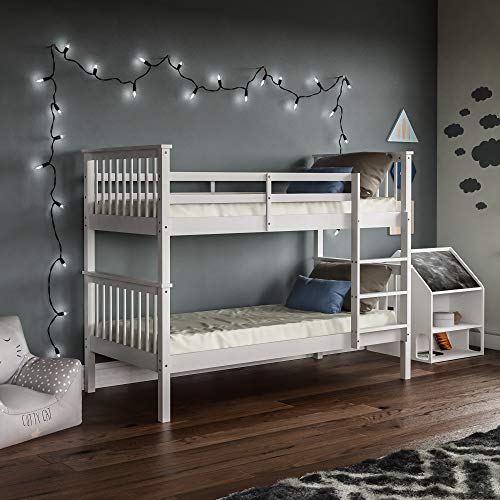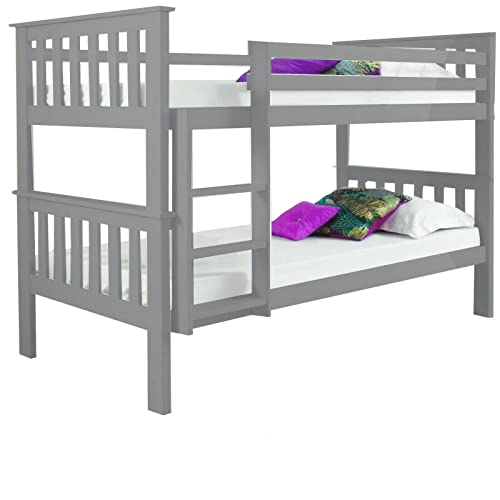
How to Shop Bunk Bed Furniture

Bunk beds can be great space-saving furniture options for kids' rooms. There are a variety of styles to choose from, ranging from stairs bunks, to desks that attach.
Selecting the best bunk bed can be a difficult task. It's essential to choose a bed that you and your child enjoy. It is also crucial to select the correct style, design and size.
How to Choose the Best Bunk Bed
There are many different types of bunk beds available but it's important to choose the right one for your child. When selecting the most suitable bunk beds for your child, it's important to take into account the height of the bed and the size of the room.
It should be safe and offer plenty of storage space. It should be safe, and it should have plenty of storage. It should include a mattress that is suitable to the age and needs of your child.
It isn't easy to pick the
best bunk beds, but you must consider the way your child uses them and what features they'd like. It might be worth adding a trundle for extra sleeping space or drawers for storage.
You should also consider the kind of material the bunk bed is constructed out of. Some bunk beds are constructed of metal and some are made of wood. This is a fantastic option for your child's bedroom, however, it's not as sturdy.
Bunk beds are a fantastic way to give your child their own space in the bedroom, and they are often decorated to reflect their individuality. Your child will feel more at ease and be able to be themselves in their own space.
If you're building a brand new home or reworking an existing one the bunk bed is a practical and affordable sleeping solution for your family. It can be put in guest rooms, a kid's room or a cabin for vacation or.
Stairs and Ladders
Bunk beds come in a wide range of shapes, styles and configurations. Pick a bunk bed that will complement your style and décor, as well as the requirements of your child.
You may want to consider a full-over-full bunk bed that has stairs that double as storage. These beds are generally more attractive and provide plenty of space saving advantages.
Stairs can be safer than ladders intended for children especially. They have wider steps and solid handrails that support your child while they climb. Some have grooves that help stop your child from sliding.
A bunk bed with steps is an ideal, safe and comfortable choice for your children. It can also be arranged in a variety of designs and can help you conserve space.
If you opt for a bunk bed with ladders, ensure the rungs are tall enough and not too narrow. You could also add a ladder cushion to make it more comfortable for your child.
Ladders can be a bit easier to climb for younger children however, they can be more difficult to climb for older ones. Ladders can be more expensive than stairways, so you need to decide whether you're ready and willing to spend the extra money.
After the bunk bed has been assembled and installed, teach your child how to use it in a safe manner. When climbing, it's essential to use both hands and face the stairs or ladder. You must also supervise your child while they are using the
buy bunk beds bed.
Age of the child
When choosing a bunkbed the age of your child's be considered. When you are deciding whether or not to purchase a bunk bed, you must consider your child's safety, comfort and sleeping habits.
It is generally recommended that children are at the age of six to sleep on the top bunk. This is due to the fact that they are more likely to be able to climb up and down the ladder or remain safely on the mattress in the evening.
It is important to consider the maturity level of your child as well as their ability to handle heights. If your child is scared of heights, you might think about an option of a bunk bed with a lower
bunk beds usa.
You must also consider the floor space in your bedroom. Make sure the top and bottom bunks meet the ceiling. You must leave at least 30 inches (2.5 feet) or at the very least 2.5 feet, between the beds and ceiling to prevent your child from hitting their head against the top bunk or roof when they sit up.
Additionally, you should consider a bunk bed that has additional features for safety. A lot of bunk beds have guard rails on the sides to prevent children from falling off the top bunk or slipping into the bottom
buy bunk beds.
Floor Space
Bunk beds are a great way to save room, whether you have one child or two. They free up floor space to accommodate other furniture, for example, a desk or play space, and offer children more space to move around their bedroom.
Bunk beds can be stacked up to three high, and they are usually available in a variety of configurations to satisfy your needs. Some designs are designed to accommodate guests while others come with a built-in desk with storage underneath.
If you're looking to save space on your floor, choose bunk beds that can be placed horizontally instead of vertically. This might not be feasible in all cases, but it's a good starting point for your search.
When selecting the best bunk beds, it's crucial to take into consideration your ceiling heights. The standard height of ceilings is between 8' and 9. There are loft and bunk beds with lower heights that can fit into smaller spaces.
You must consider the characteristics of the bunk bed and how they work in your bedroom. You'll want to make sure that the top bunk is equipped with a ladder and guard rails, while the bottom bunk comes with drawers under the bed. It is also important to take into consideration what your child will use the beds for - will they be sleeping in the top bunk all of the time or do they require a desk and storage under the bottom?
Style
Bunk beds come in a variety of designs and can be adapted to suit the room of your child. They can also be a great way to make space for the floor space in your child's space, particularly if are short on space.
There are many types of bunk beds, ranging from basic models or standard ones to lofts with a desk. You can also find bunk beds that are built-in bookcases or drawers if you're looking for more storage.
The best bunk beds are crafted with high-quality wood as well as a sturdy frame and comfortable mattresses. The most suitable mattresses for bunk beds are are between 5 and 6 inches thick. This will allow the guard rails on top of the mattress to be easily visible thus increasing the safety.
When purchasing a bunk bed and you are looking for safety features such as an edging frame for the guardrail that is connected to the bed. This will prevent your kids from accidentally rolling out of bed when they sleep.
Some bunk beds come with a ladder that can be attached to the upper and lower rails. This type of ladder lets your child access to drawers underneath the bed and climbs up and down without getting in their way.
You can choose from a variety of mattresses that will give your child the comfort and support he or she requires. There are a variety of choices available on the market, from latex to hybrid foam. You can also purchase a bunk bed with a slide to provide your child with a thrilling experience when they wake up.
Safety
When purchasing a bunkbed it is essential to consider safety. The safety features on bunk beds like guard rails and ladders, are designed to stop injuries or accidents resulting from falling or entrapment, as well as structural failure.
A safety railing should be placed on all four sides of the top bunk. This barrier helps to keep children from falling off the top bunk and hurting themselves.
The space between the guardrails and the sides of the bed shouldn't be greater than 3 1/2 inches wide. This will prevent your child from falling under the bed while they are sleeping.
To stop your child from falling off the bed, you must ensure that the guardrails on the bed are at least 16cm taller than the mattress. The mattresses on the upper and lower bunks should be able to fit comfortably along all four sides of bed, and should not be more than 15cm.
If you're searching for a bunk bed, make sure it is built to meet the strict standards set by your country's safety commission. These rules are applicable to all aspects of bunk bed construction and design - with a special attention to gaps and spaces that are likely for small heads, arms and legs to get stuck in.



